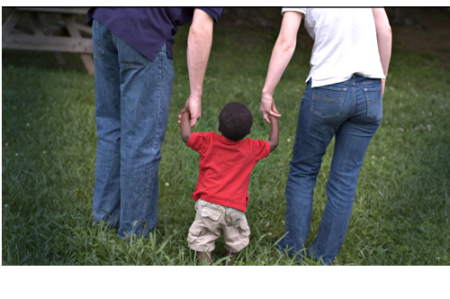I read this summary of a podcast interview with Thomas Rhett about the adoption of his daughter and I’m not okay with it. I don’t want to pretend that this interview was a full description of how he’s handling adoption conversations in his home. I want to give him the benefit of the doubt, but I also want to present an alternative narrative about how to handle these adoption conversations to anyone who is looking to Rhett as an example.
From the article:
“She asks questions all the time,” Thomas, 32, told the Today co-anchor. “She talks to Lauren, like, ‘When can we go see my friends in Uganda?'”
While Willa Gray’s curiosity may be growing, Thomas admitted he’s not ready to have a deep conservation with her about adoption just yet.
“You go, ‘Well, what age is the right age?’ The world is moving so fast that it’s like, to have a conversation with a 6-year-old like that,” he said. “Maybe I’m old-school that way but I’m like, ‘Maybe we need to wait ’til she’s 10.”
I would like to propose that we do not have to sidestep the truth of our child’s adoption story. In fact, it may be more damaging the longer you wait to have those conversations.
It’s a really nice idea that if we don’t talk about it, we can preserve our child’s “innocence”. That somehow if we don’t acknowledge the trauma that happened to them, it can’t impact them. But that is ridiculous. The trauma already happened. Rhett’s daughter (like my son) was adopted from Africa. Her adoption is an obvious fact to anyone who sees their family. She knows she’s adopted. She has questions. She remembers her life before her current reality. You are not preserving her innocence not to answer the questions she’s asking. You’re preserving her ignorance. And she will likely resent you for it. Addressing the trauma our kids already experienced and already feel is the first step to helping them heal.

Adopted kids deserve the truth. They deserve it from the moment they enter your life. You whisper it over their cribs. You talk about it between kisses and bedtime stories. You speak of their first mom as you comb their hair. You answer every question as it comes up. You set the tone for those conversations before they ever need to happen by being honest, approachable and open.
So why do some parents think the right course of action is to kick that can down the road? I don’t think it’s about preserving a child’s innocence. I think it’s about our own discomfort and our own insecurities.
If I tell them the truth, will they not see me as their “real” parent? Will I have to watch them grieve? Will I have to talk about the ethics of adoption, or sex outside of marriage, or death, or poverty, or substance abuse, or any number of topics that I don’t like thinking about?
Kids know when they aren’t being given the full story. When we refuse to answer their questions, they get the message that these questions aren’t safe. It doesn’t make the questions go away, it just means they learn you aren’t a safe person to talk to. You may have “preserved their innocence” when it comes to the specifics of their adoption, but you are damaging something so foundational to their ability to heal from the trauma they’ve already endured– you’re disrupting their ability to trust you.
When we truly center the needs of the child, it becomes easier to tell them the truth. It’s not about me, it’s about them and their story. I am the keeper of that story and my job is to make sure they fully know it and know they can trust me to tell them the truth. If that trust is damaged, my kids will have lost much more than their innocence. They will feel betrayed, lied to, disrespected. They won’t know if they can believe me. In adoption, trust is unspeakably important. It is what allows our kids to attach and believe that we are for them. Trust is the foundation for our relationship when biology is absent. Giving our kids any reason to doubt our honesty means disrupting what we’ve worked so hard to build.
And by always telling them the truth, I believe we’ve lessened the traumatic impact of their story. They will not remember a time before they knew their reality. It will not come as a shock or change their view of themselves, their history, or the world. It is just a part of their story they have always known, even before they fully understood it.
So I will tell my kids the truth about their adoptions over and over again. I will answer the questions they’re asking. I have pulled out paperwork and combed through it with a child who was ready to see it with their own eyes. I have said hard things and I have sat with my kids through their grief. Would lying have been easier? Would it have been nice to just tell them I’d let them know when they’re older? Sure. For today. But I’m not parenting based on what makes life easy today. I’m taking the long view.
I’m sure there are ways I’m doing this wrong. As my kids get older I trust them to tell me. We don’t know what we don’t know. But for my kids, their adoption story will never be something that they don’t know.
